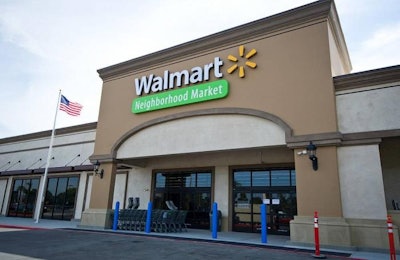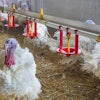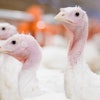
Because we live in an interconnected world, what happens "over there" will more than likely eventually happen "over here," wherever you may be, and regardless of whether you like it.
For example, take the overdue upsurge in concern over antibiotic resistance in the U.S., and the subsequent renewed focus in Europe, despite the latter having banned in-feed antibiotic growth promoters from January 1, 2006 and subsequently following an ever-stricter judicious use policy. Who is leading whom in this case is not clear, but there’s certainly a connection.
And so to Wal-Mart, and how egg producers in Europe may be in for a bit of a blow, despite being pioneers in the move away from traditional battery cages, which were banned in the European Union from January 1, 2012.
Ripple effects
To much fanfare, Wal-Mart announced in April that it would switch to 100 percent cage-free eggs by 2025.
Animal welfare organization Compassion in World Farming USA Director Leah Garces commented: “As the largest retailer in the U.S., Wal-Mart’s move will have firm ripple effects reaching far beyond our borders, where retailers are starting to fall behind.”
How very true.
Asda, Wal-Mart’s U.K. subsidiary, has made no such pledge to stop sourcing from enriched cages, although the supermarket has been unable to source from battery cages since they became illegal in the European Union on January 1, 2012.
A petition has already been started to urge Asda to change its sourcing policy and has attracted more than 48,000 signatures.
At least four major supermarket chains in the U.K. have already stopped sourcing from enriched cages for both whole eggs for products containing eggs, but not Asda.
Come out of the cage age!
Compassion in World Farming CEO Philip Lymberg commented that it was bizarre that a subsidiary of an American company with a cage-free commitment, based in a country known for its leadership on farm animal welfare policies, had yet to make a cage-free pledge.
Compassion in World World Farming is now urging the chain to “come out of the cage age” and to commit to a cage-free future.
But spare a thought for the egg producers that supply Asda, or any of the other retailers that stock eggs or products including eggs from enriched cages.
I don’t want to discuss the rights or wrongs of enriched cages, but at the time when standard cages were phased out, they were seen by many as an acceptable alternative, and 51 percent of the U.K.’s egg production comes from this type of system.
And don’t think this will be only a U.K. issue. The country imports eggs, so there could well be further ripples beyond its borders. Egg producers in other countries where Wal-Mart operates may also want to take note.
For those producers that moved out of battery and into enriched cages, a significant investment was made in the belief that there would be a market for their product. Four years later, that investment looks increasingly questionable.


















